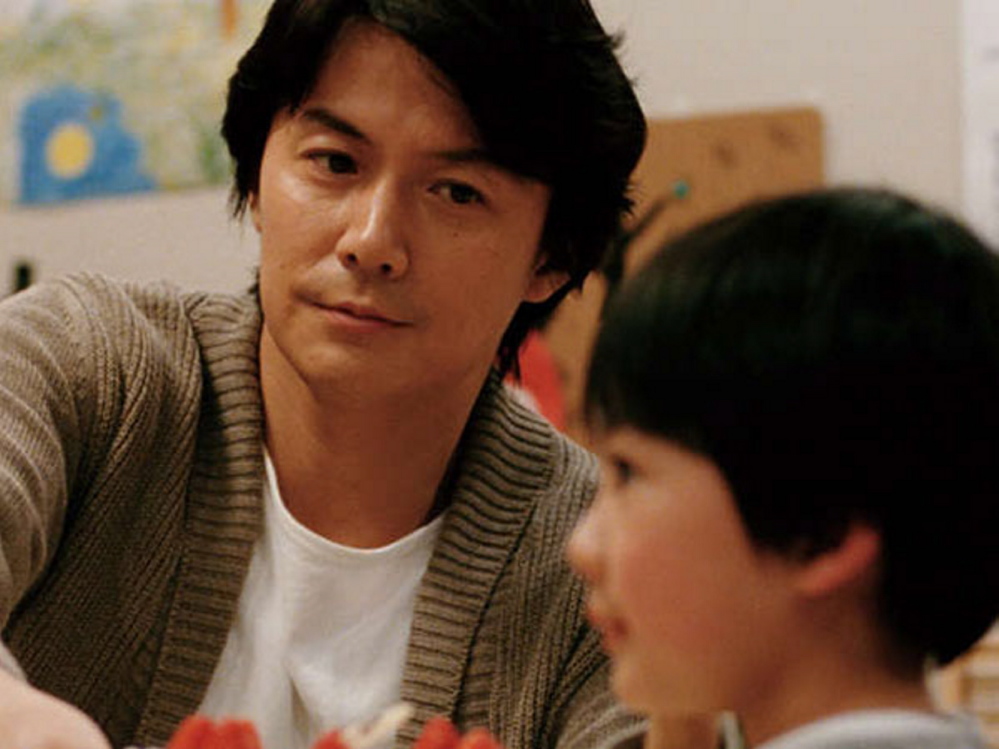If you’ve seen Hirokazu Koreeda’s films – “Nobody Knows,” “Still Life,” “I Wish” – then just the announcement that a new one, “Like Father, Like Son,” has arrived is all you need to know.
If not, catch this beautifully observed study of two families in modern-day Japan, of the relationships between parents and their children – and then go back and discover Koreeda’s other work. Small masterpieces, every one.
“Like Father, Like Son,” winner of the Jury Prize at the 2013 Cannes Film Festival, finds a workaholic architect, Ryota (Masaharu Fukuyama) and his wife, Midori (Machiko Ono), living well in a high-rise apartment with their 6-year-old, Keita (Keita Ninomiya). The parents push their son to excel, prepping him for an admission interview to an elite school, giving him piano lessons, limiting his play time.
Ryota leaves early, returns late, works weekends, but when he is home, he is training, lecturing, shaping Keita in his mold.
And then a call from the hospital where Keita was born changes everything. Babies had been switched at birth. Another couple, a shopkeeper, Yudai (Rirî Furankî), and a fast-food worker, Yukari (Yôko Maki), have their son. And vice versa.
“Like Father, Like Son” explores the bonds between parent and child. Is DNA more important than love? Bloodline more essential than environment? How do class and culture and money work into the equation?
With gentle humor and piercing insight – and with deft and delicate performances from the four adults, and the ridiculously cute Ninomiya – “Like Father, Like Son” explores themes that are essential to us all.
Koreeda’s film is a small thing, but the emotions it elicits are big and deep and wide.
Send questions/comments to the editors.



Success. Please wait for the page to reload. If the page does not reload within 5 seconds, please refresh the page.
Enter your email and password to access comments.
Hi, to comment on stories you must . This profile is in addition to your subscription and website login.
Already have a commenting profile? .
Invalid username/password.
Please check your email to confirm and complete your registration.
Only subscribers are eligible to post comments. Please subscribe or login first for digital access. Here’s why.
Use the form below to reset your password. When you've submitted your account email, we will send an email with a reset code.